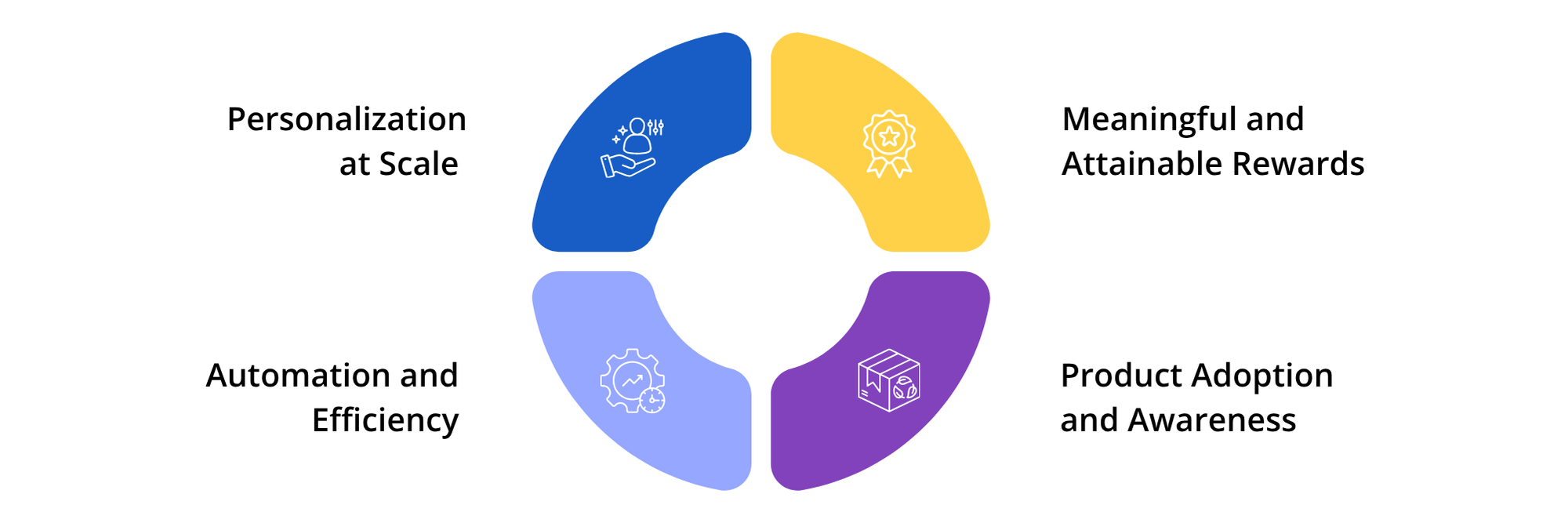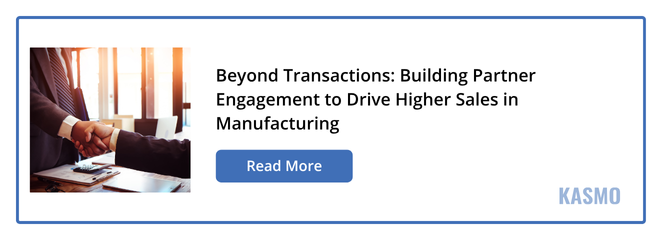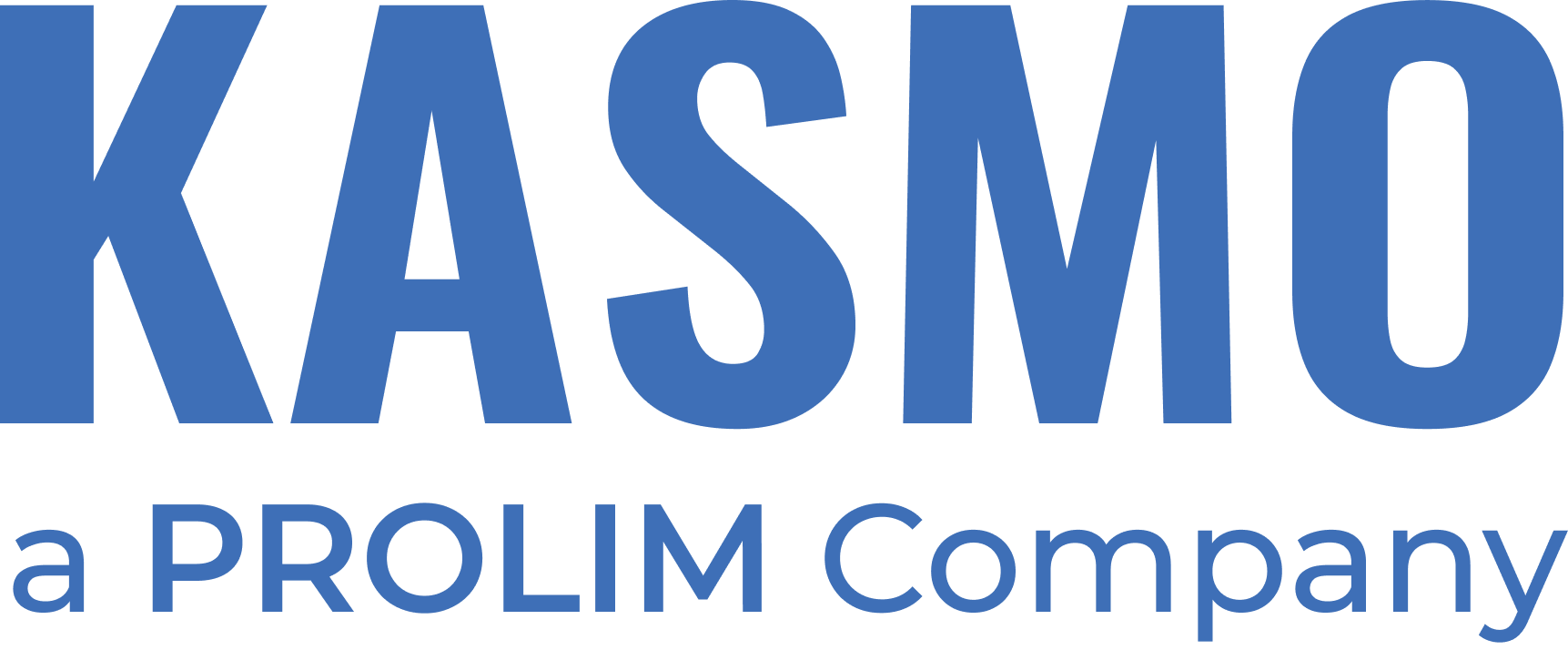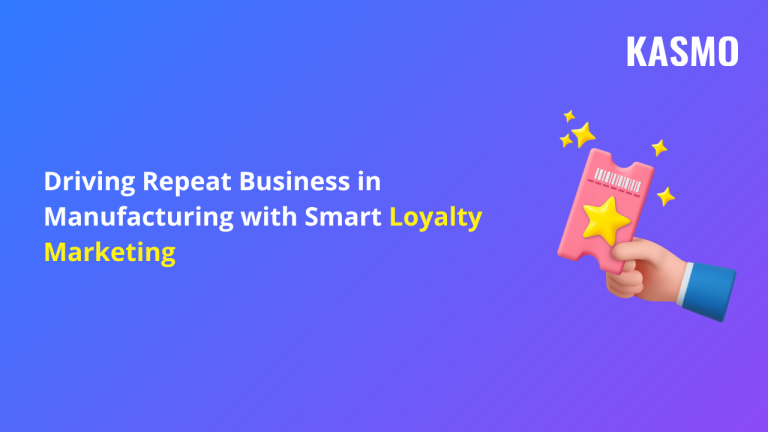Customer loyalty in manufacturing is transforming with changing customer needs and technological advancements. With increasing competition, more discerning customers, and complex B2B ecosystems involving distributors, dealers, and service partners, manufacturers can no longer rely solely on traditional incentives like discounts or bulk rewards to retain business. Today’s market demands personalized, data-driven engagement, so businesses need to prioritize loyalty marketing to build lasting relationships with their customers.
Manufacturers face unique challenges with generic loyalty programs that fail to resonate with diverse stakeholders. To overcome them, manufacturers are turning to AI, automation, and integrated platforms like Salesforce Loyalty Management. These technologies enable companies to unify data, deliver tailored rewards, automate processes, and create seamless experiences for distributors, dealers, and end customers alike.
In this blog, we explore what loyalty marketing is, how it is being reimagined through technology, and how manufacturers can transform loyalty from a transactional program into a strategic growth driver using Salesforce Loyalty Management.
Understanding Loyalty Marketing in Manufacturing
Loyalty marketing in manufacturing is an effective approach to retain and grow the existing customer base by offering incentives that encourage repeat purchases and build long-term relationships. It’s about building enduring relationships with distributors, dealers, and end customers across complex B2B ecosystems. This involves creating structured programs, such as rewards, discounts, or exclusive access, to build customer trust and keep them choosing your brand over competitors.
In the manufacturing industry, the customer journey is long and involves multiple stakeholders like procurement teams, distributors, engineers, and service partners. These relationships require strong communication, performance, transparency, and data-backed engagement. Loyalty marketing helps manufacturers create a connected ecosystem where every partner feels valued and motivated. It focuses on rewarding repeat purchases, on-time deliveries, and collaborative business growth.
Common Loyalty Marketing Pain Points in Manufacturing
Fragmented Customer and Partner Data
The major challenges manufacturers face in loyalty marketing are disconnected customer and partner data spread across multiple systems. This fragmentation affects the single view of dealers, distributors, and end customers. So, manufacturers struggle to track engagement, measure loyalty performance, and deliver consistent experiences. As a result, personalization becomes limited, and there are missed opportunities to strengthen long-term relationships.
Lack of Direct Relationships with End Customers
Manufacturing brands often lack direct contact with consumers. Distributors or stakeholders handle their sales, and this disconnects direct contact with end consumers. It can be difficult for end-customers to distinguish between the brands they purchase for each product, so they show their loyalty to the intermediaries and the retailers instead of the manufacturers. Lack of direct relationships can make it hard to influence and understand customer behavior.
Lack of Personalization and Targeted Engagement
Most traditional loyalty programs in manufacturing offer generic incentives that fail to align with individual partner motivations. Dealers or distributors differ in size, region, and business goals, so generic rewards often lead to disengagement. According to a survey by Gartner, 86% of B2B customers expect companies to be well-informed about their personal information during a service interaction. Manufacturers need AI-driven insights to tailor rewards, communications, and engagement based on partner behavior and performance. Without personalization, loyalty initiatives fail to inspire participation and gain desired business outcomes.
Loyalty Program and Reward Issues
Manufacturers often lack the automation tools needed to manage enrollment, calculate rewards, and monitor program performance efficiently. Also, without proper analytics, it’s challenging to link loyalty initiatives to repeat orders, higher revenue, or improved partner satisfaction. This results in designing complicated processes to redeem rewards. When rewards lack relevance or perceived value, customers quickly lose interest and disengage from the program.
What Makes a Manufacturing Loyalty Program Marketing Truly Successful?

Personalization at Scale
The most successful programs offer a variety of rewards that cater to the diverse needs of different partners. Generic rewards don’t create lasting loyalty. Manufacturers need AI-driven personalization to design specific incentives based on dealer performance, region, product lines, and customer behavior. Customized offers and recognition help partners feel valued, fostering stronger, long-term relationships.
Automation and Efficiency
Manual management of enrollments, points, and redemptions leads to errors and inefficiencies. Modern, automated approaches powered by AI and data analytics offer greater efficiency and personalization, providing market advantages. Automation tools like Salesforce Loyalty Management enable manufacturers to streamline workflows, track rewards in real time, and scale loyalty programs. Using loyalty statistics to predict product demand helps optimize production and inventory levels. This ensures transparency, personalized engagement with distributors, installers, and end-users.
Meaningful and Attainable Rewards
The success of any loyalty program depends on the relevance and accessibility of its rewards. Legacy loyalty approaches like rebates or bulk discounts can drive short-term sales, but they don’t encourage sustained loyalty. Successful manufacturers combine these with activity-based rewards and offer tiered incentives like performance bonuses, exclusive access to new products, or marketing support to engage more actively. They can also provide co-marketing opportunities, exclusive learning sessions, or even options to donate earned points to build meaning and emotional value and strengthen partner relationships.
Product Adoption and Awareness
A loyalty program should not only reward purchases but also inspire broader product adoption. Manufacturers can motivate partners to diversify product portfolios, maintain consistent order volumes, and provide valuable product feedback by offering bonus points or vouchers. Alliances provide access to new consumers or markets, gather additional data, increase brand awareness, and provide greater earning options that increase both engagement and value. This approach boosts sales and deepens product familiarity, and strengthens overall brand visibility within the channel partners.
How Technology Is Helping Manufacturing Brands Build Customer Loyalty
Technology empowers manufacturers to nurture their customer loyalty, turning traditional reward systems into intelligent, relationship-driven experiences. It helps brands to stand out by building emotional, data-powered connections with customers and partners alike. Advanced AI, CRM, and automation tools allow manufacturers to gain their customers’ data, analyze it, and build the most relevant loyalty programs.
AI-driven insights and predictive analytics provide higher insights into customer behavior, market trends, and competitor analysis. AI helps identify behavior patterns, predict churn, and uncover customer preferences, enabling proactive engagement. For example, if AI detects early signs of disengagement, like a decline in purchase, it can automatically recommend targeted offers or service interventions. Manufacturers can adopt an AI Agent to automate these insights, providing real-time recommendations that build customer relationships and enhance program performance.
Referral and cashback programs also play a vital role in boosting loyalty through technology. Referrals harness the power of word-of-mouth, a trusted and cost-effective marketing approach. Also, rewarding helps to create brand awareness and build community-driven advocacy. A cashback solution, on the other hand, works exceptionally well for manufacturers operating in markets with low differentiation and high competition. Offering instant or accumulated cashback makes customers stay loyal, helping them feel rewarded for every interaction and purchase.
Technology makes these experiences work easily and effectively. By integrating referral tracking, cashback automation, and AI-driven insights into a single ecosystem, manufacturers can deliver a smooth, rewarding customer journey. Whether it’s identifying potential partners through data, automating payouts, or suggesting the next best offer, these digital tools help brands operate efficiently while deepening customer trust.
 How Salesforce Loyalty Management Solution Helps Manufacturers
How Salesforce Loyalty Management Solution Helps Manufacturers
Salesforce Loyalty Management empowers companies to create flexible, data-driven loyalty programs. Especially in the manufacturing sector, where relationships with distributors, dealers, and B2B clients are important, it helps to strengthen engagement across the entire partner and customer base. Salesforce solution allows manufacturers to implement loyalty initiatives with clicks, not code, enabling quick deployment and easy customization to meet the unique demands of manufacturing businesses. Manufacturers can also integrate this loyalty management solution with Salesforce Digital 360, Service Cloud, and Tableau. It helps to deliver a connected loyalty experience across all touchpoints, like dealer onboarding, channel partner incentives, or end-customer engagement.
Salesforce Loyalty Management Capabilities
Flexible and Loyalty Program Design: Manufacturers can design a variety of loyalty programs that suit complex B2B structures. For example, tiered membership for distributors, points per volume purchased, or activity-based incentives for dealers completing training and certifications. The platform allows programs to adapt to the unique operational and business requirements of manufacturing.
Build Integrated loyalty: Through Salesforce Customer 360, manufacturers gain a single source of truth. Partners can enroll seamlessly in programs via Experience Cloud, and manufacturers can send personalized communications using Marketing Cloud and Customer 360 Audiences. Connecting External systems and third-party solutions also helps to automate reminders for orders and training and further enhance program effectiveness.
Personalized engagement: Loyalty Management enables manufacturers to leverage customer and partner data, purchase history, interactions, website behavior, and more. This helps to create tailored rewards and promotions. Targeted incentives ensure that distributors, dealers, and end customers feel valued and build stronger collaboration.
Enables effective partnership: Manufacturers can offer customers a wider range of opportunities to earn and redeem rewards while engaging with partners across industries. Managing all partnerships on a single platform helps companies increase program participation, reduce operational risks, and enhance collaboration. This includes seamless partner onboarding, launching joint promotions, and creating a unified loyalty experience.
Performance measurement: Using unified CRM, manufacturers can track loyalty program success, monitor dealer and partner engagement, and analyze member behavior. Program performance can be tracked and optimized with prebuilt predictive dashboards. AI-driven insights help them refine targeting, prioritize high-performing promotions, identify top advocates and channels, and adjust strategies in real time. This data-driven approach ensures that loyalty investments are effective and continuously aligned with business goals.
Conclusion
Modern loyalty marketing in manufacturing is about creating value, improving engagement, and building connections at every touchpoint. It is an effective customer retention marketing strategy that helps manufacturers strengthen relationships with distributors, dealers, and end customers. Adopting Salesforce Loyalty Management helps to gain AI-driven insights, predictive analytics, and unified customer views to provide a seamless, engaging, and personalized experience that resonates with every stakeholder in the value chain. The right technology transforms loyalty programs and helps brands drive higher repeat business.




